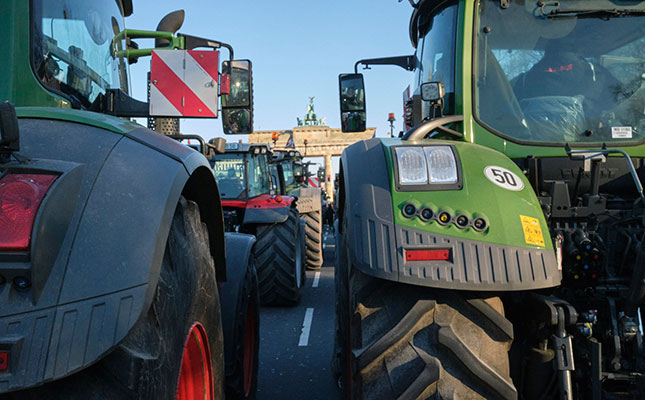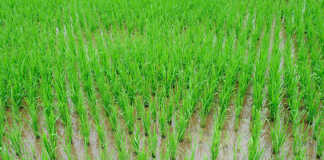
In the latest protest, farmers in France blockaded major access routes into Paris last week.
BBC News reported that although the concerns of farmers there took on more of a national character, such as having to deal with increasing bureaucracy, other concerns included more universal issues. These included the rising cost of agricultural diesel, delays in the payment of EU subsidies, as well as the competition faced from imported commodities.
In addition, protests were also reported across Germany. Staging a week of national strikes in mid-January, farmers expressed anger about the phasing out of tax rebates on agricultural diesel.
According to the BBC, there had always been suspicion on the part of the agriculture sector in Europe about EU measures to overhaul its €55 billion (about R1,1 trillion) Common Agricultural Policy (CAP) to make it more sustainable. It was being estimated that more than 70% of the funds were disbursed in the form of direct payments to farmers to act as a kind of safety net.
Part of updating CAP included an obligation on farmers to devote at least 4% of their arable land to non-productive activities, carry out crop rotations, and reduce fertiliser use by at least 20%, the BBC reported. These measures had, however, fuelled fears among many farmers that the European agriculture sector would become less competitive against imported products.
Other concerns included the value of direct payments dramatically reducing due to burgeoning inflation in the region.
“Farmers are having to do much more … with less support,” Luc Vernet of the think tank Farm Europe based in Brussels, Belgium, told the BBC. “They don’t see how they can cope any longer.”
However, farmer protests were nothing new in some European countries, with the first such demonstrations seen in the Netherlands in 2019 against demands by the Dutch government that livestock production be halved in an attempt to reduce nitrogen oxide emissions.
In addition, the BBC reported that the residents of Brussels had long been accustomed to farmers descending on the city’s European quarter to spray buildings with milk, or fill the streets with cattle in protest at EU agricultural regulations.
What was bringing farmer protests to almost every corner of Europe now, though, was the fallout from the Russia-Ukraine war, according to analysts.
When Russia invaded Ukraine in February 2022, most trade routes in the Black Sea region were blocked off, and the EU temporarily lifted restrictions on imports from Ukraine, which resulted in that country’s agricultural produce flooding European markets.
As a result, the prices of produce in neighbouring countries such as Hungary, Poland and Romania fell sharply, leading to local farmers being unable to sell their crops. Polish farmers also embarked on a national strike against agricultural imports from Ukraine, blockading more than 160 roads across the country in the last week of January.
These protests were not going unnoticed, however, with the president of the European Commission, Ursula von der Leyen, recently admitting that “there is an increasing division and polarisation”, and had launched a “strategic dialogue” between agriculture groups and EU decision-makers, according to the BBC.













